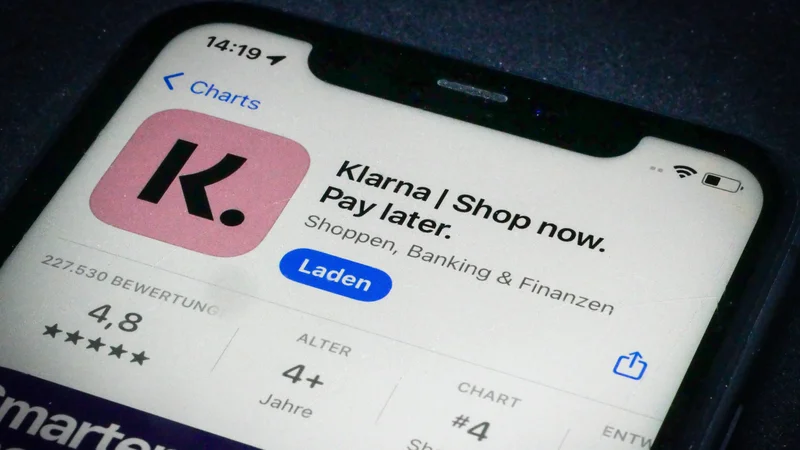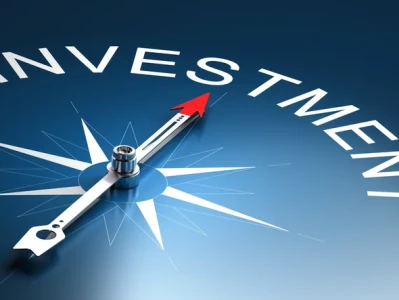Of course. Here is the feature article, written from the persona of Dr. Aris Thorne.
*
# Klarna's IPO Isn't Just a Stock Pop—It's the Dawn of 'Fluid Finance'
When the numbers for the Klarna IPO flashed across my screen on October 2nd—a pop of over 17% on its first day, pushing its valuation well past $15 billion—I saw the usual flurry of headlines. Analysts debated the Klarna’s Stock Surge: Unraveling the Upward Trend - StocksToTrade, and investors scrambled to understand if this was the next great FinTech rocket ship or just another overhyped launch. But they were all missing the point.
This isn't just a story about a successful public offering. It’s not about one company or its balance sheet. When I saw the stock ticker climb, I honestly just sat back in my chair, because what I was witnessing wasn't a financial event; it was a cultural one. We’re seeing the first real, mainstream validation of a concept I call "Fluid Finance," and believe me, it’s about to change everything about our relationship with money.
For decades, our financial lives have been built around rigid, monolithic institutions. The Bank. The Credit Bureau. These were stone fortresses you had to approach, hat in hand, to ask for permission. You wanted a loan? Fill out a 20-page form and wait. You wanted credit? Hope your FICO score, a static number based on years-old data, was good enough. It was a system built on friction and judgment.
What Klarna, and its peers like Afterpay and Affirm, have done is something so profoundly simple yet revolutionary: they’ve turned the fortress into a river. They’ve made finance flow.
The Great Unbundling of the Bank
What do I mean by "Fluid Finance"? Imagine the music industry. We used to buy entire albums—a dozen songs bundled together by a record label—just to get the two or three tracks we actually loved. Then came Spotify, which unbundled the album and let the music flow directly to us, song by song, playlist by playlist, integrated seamlessly into our lives.
Klarna is doing to banking what Spotify did to music. It’s unbundling the core services—payments, credit, shopping—and embedding them exactly where we need them: at the point of decision. The klarna app or a simple button on a checkout page isn't just a new way to pay; it’s a radical rethinking of how credit is granted. It’s not a loan application; it’s a feature of the transaction itself.

This is the kind of breakthrough that reminds me why I got into this field in the first place. Skeptics point to Klarna’s $16.6 billion in liabilities and sound the alarm bells. But to view that number through the lens of a traditional bank is to fundamentally misunderstand the model. This isn't a static pile of long-term debt. It’s a measure of the sheer volume of transactions and trust flowing through the system at any given moment. It’s the engine, not the anchor.
This entire model is powered by a constant stream of real-time transactional data—in simpler terms, the system learns from our behavior to make instant, intelligent decisions. It’s not about a dusty old credit score; it’s about a dynamic, living financial identity. Is this a risk? Of course. But is it a more accurate and responsive way to gauge creditworthiness than a system designed in the 1980s? Absolutely.
Beyond Payments: A New Digital Pulse
If you think this is just about splitting a payment for a new pair of sneakers, you’re still looking at the first frame of the movie. The buy-now-pay-later model is just the most visible application of this fluid infrastructure. Think bigger.
This reminds me of the dawn of the credit card in the 1950s. It wasn’t just a new piece of plastic; it was a technology that fundamentally rewired consumer behavior and unlocked decades of economic growth by making consumption more accessible. Fluid Finance is the digital-native successor to that revolution. The potential here is just breathtaking—we're talking about a system that could democratize access to capital on a global scale, breaking down old barriers and creating a truly personalized financial ecosystem where your potential is judged by your present actions, not your past mistakes.
What happens when this real-time, fluid financial identity can be used for more than just shopping? What if it could help you secure a small business loan in minutes, based on your proven cash flow, not three years of tax returns? What if it could dynamically adjust your mortgage eligibility based on your current income patterns? We are talking about a future where financial opportunity isn't a gate you have to unlock, but a current that you can join.
Of course, with this new power comes immense responsibility. The architects of these systems have an ethical duty to design them with transparency, fairness, and safeguards to protect people. We can’t build this incredible new world on a foundation of hidden fees or by encouraging reckless spending. The goal is empowerment, not entrapment.
I was scrolling through a klarna reddit thread the other day, and amidst all the noise about the klarna stock, one comment cut through it all. A user wrote, "This isn't about getting a new TV I can't afford. It's about being able to manage my cash flow as a freelancer without having to beg a bank for a credit line that doesn't understand my income."
That’s it. That’s the human-level shift. It’s about control, flexibility, and dignity.
The Transaction is Just the Beginning
So, yes, the Klarna Group had a fantastic IPO. The market is excited, and the numbers are impressive. But don't get fixated on the stock ticker. That’s just the exhaust plume from the rocket that has already launched. The real story, the one that will define the next decade, is the dawn of Fluid Finance. We are moving from a world where we go to the bank, to a world where our finances flow with us, seamlessly, intelligently, and instantly, embedded into the very pulse of our digital lives.

